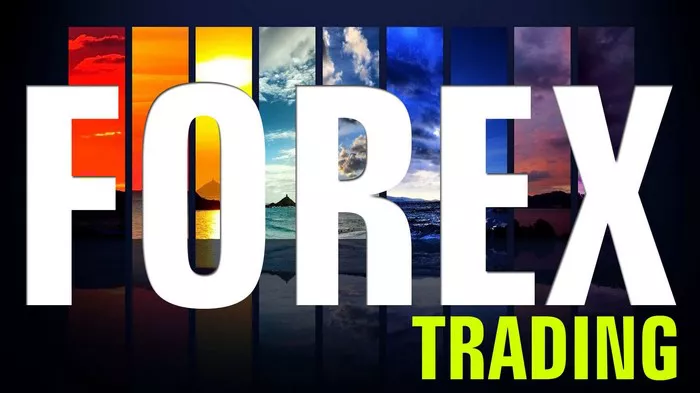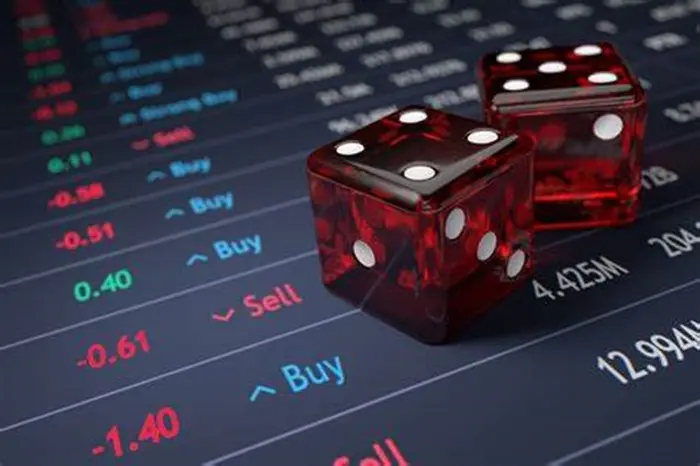The foreign exchange market, commonly known as Forex, is a vast and dynamic global marketplace. It is where the currencies of different countries are bought and sold. Forex trading is essential for various reasons, such as facilitating international trade, enabling businesses to conduct transactions across borders, and providing opportunities for investors to profit from currency fluctuations. Understanding how Forex works is crucial for anyone interested in this area, whether you’re a businessperson involved in international commerce or an individual looking to diversify your investment portfolio.
What is Forex?
Forex is the largest financial market in the world, with trillions of dollars in daily trading volume. It operates 24 hours a day, five days a week, across different time zones. The main participants in the Forex market include central banks, commercial banks, investment banks, hedge funds, multinational corporations, and individual traders. Central banks play a significant role as they can influence currency values through monetary policies like interest rate adjustments and quantitative easing. For example, if a central bank raises interest rates, it can make the country’s currency more attractive to investors, leading to an increase in demand and potentially a rise in its value.
Currency Pairs
In Forex trading, currencies are always traded in pairs. The most common currency pairs are known as the majors. These include EUR/USD (Euro against the US Dollar), USD/JPY (US Dollar against the Japanese Yen), GBP/USD (British Pound against the US Dollar), and USD/CHF (US Dollar against the Swiss Franc). For example, in the EUR/USD pair, the euro is the base currency, and the US dollar is the quote currency. The exchange rate indicates how much of the quote currency is needed to buy one unit of the base currency. If the EUR/USD exchange rate is 1.20, it means that 1 euro can be exchanged for 1.20 US dollars.
How Prices are Determined
The exchange rates of currency pairs in Forex are determined by the forces of supply and demand. If there is a high demand for a particular currency, its value will tend to rise relative to other currencies. Several factors influence supply and demand. Economic indicators play a crucial role. For instance, a country with strong GDP growth, low unemployment, and stable inflation is likely to see an increase in demand for its currency. If a country reports better-than-expected economic data, such as higher GDP growth figures, investors may want to invest in that country, which requires buying its currency. This increased demand will push up the value of the currency.
Interest rates also have a significant impact. Higher interest rates in a country can attract foreign investors seeking better returns on their investments. When investors move their funds to a country with higher interest rates, they need to buy the local currency, increasing its demand. For example, if the US Federal Reserve raises interest rates while other central banks keep rates stable, the US dollar may strengthen against other currencies as investors flock to US-denominated assets.
Political stability and geopolitical events can also affect currency values. A country with a stable political environment is generally more attractive to investors. On the other hand, political unrest, elections, or geopolitical tensions can lead to uncertainty and a decrease in demand for a country’s currency. For example, if there is a political crisis in a European country, the euro may weaken as investors become more cautious about holding euro-denominated assets.
Types of Forex Traders
1. Retail Traders
Retail traders are individual investors who participate in Forex trading through online brokers. They usually trade with relatively small amounts of capital and use trading platforms provided by brokers. Retail traders can access the Forex market from anywhere in the world with an internet connection. They analyze the market using technical and fundamental analysis. Technical analysis involves studying charts and using indicators like moving averages, MACD (Moving Average Convergence Divergence), and RSI (Relative Strength Index) to predict future price movements. Fundamental analysis, on the other hand, focuses on economic data, news events, and central bank policies. For example, a retail trader might look at the monthly employment report of a country to gauge the health of its economy and make trading decisions based on that.
2. Institutional Traders
Institutional traders include banks, hedge funds, and multinational corporations. Banks engage in Forex trading to manage their foreign exchange exposure and to provide services to their clients. They have large trading desks with teams of traders and analysts. Hedge funds trade Forex as part of their investment strategies, aiming to generate profits from currency movements. Multinational corporations need to exchange currencies for their international business operations. For example, a US-based company that imports goods from Europe will need to sell US dollars and buy euros to pay its suppliers. Institutional traders often have access to more resources and information than retail traders, which can give them an edge in the market.
Forex Trading Strategies
1. Day Trading
Day trading is a short-term trading strategy where traders open and close positions within the same trading day. Day traders aim to profit from small price movements. They closely monitor the market throughout the day and use technical analysis tools to identify short-term trends and trading opportunities. For example, a day trader might notice that the EUR/USD pair has broken above a key resistance level and enter a long position, expecting the price to continue rising during the day. They will then close the position before the market closes to avoid overnight risks.
2. Swing Trading
Swing trading is a medium-term trading strategy. Swing traders hold positions for a few days to a few weeks. They look for larger price swings and trends. They use a combination of technical and fundamental analysis. For instance, a swing trader might identify a currency pair that is in a downtrend based on technical indicators and also consider negative economic news about the country of the base currency. They would then enter a short position and hold it until they believe the trend is reversing or until a predetermined profit target or stop-loss level is reached.
3. Position Trading
Position trading is a long-term trading strategy. Position traders hold positions for months or even years. They focus on fundamental factors and long-term trends. For example, a position trader might believe that the US dollar will weaken over the long term due to factors like a large national debt and a potential shift in the global economic balance. They would enter a short position in USD pairs and hold it, ignoring short-term market fluctuations. Position trading requires a lot of patience and a deep understanding of global economic and political trends.
Leverage in Forex Trading
Leverage is a tool that allows traders to control a large position with a relatively small amount of capital. For example, a broker might offer a leverage of 100:1. This means that with a $1,000 deposit, a trader can control a position worth $100,000. While leverage can amplify profits, it also magnifies losses. If the market moves against a trader using leverage, the losses can be significant. For example, if a trader uses 100:1 leverage and the market moves 1% against their position, they could lose 100% of their capital. Therefore, it is essential to use leverage carefully and understand the risks involved.
Risks in Forex Trading
1. Market Risk
Market risk is the most significant risk in Forex trading. It is the risk that the value of a currency pair will move against a trader’s position. The Forex market is highly volatile, and prices can change rapidly due to various factors, as mentioned earlier. Even with careful analysis and trading strategies, there is always a chance of losing money due to unexpected market movements. For example, a sudden geopolitical event like a terrorist attack or a natural disaster can cause significant currency fluctuations that are difficult to predict.
2. Leverage Risk
As discussed, leverage can be a double-edged sword. While it can increase potential profits, it also exposes traders to the risk of large losses. If a trader overuses leverage or does not manage it properly, they can quickly wipe out their trading account. It is crucial to have a risk management plan in place when using leverage, such as setting stop-loss orders to limit potential losses.
3. Counterparty Risk
Counterparty risk is the risk that the broker or financial institution with which a trader is dealing may default. Although most regulated brokers are required to maintain certain financial standards, there is still a small chance of a broker going bankrupt or facing financial difficulties. To mitigate this risk, traders should choose well-known and regulated brokers and keep an eye on the broker’s financial health.
Forex Trading Tools and Platforms
Most Forex trading is done through online trading platforms provided by brokers. These platforms offer various features such as real-time price charts, technical analysis tools, order placement capabilities, and account management functions. Traders can use these platforms to analyze the market, place trades, and monitor their positions. Some popular Forex trading platforms include MetaTrader 4 and MetaTrader 5. These platforms are widely used by retail and institutional traders alike. They allow traders to customize their trading experience, use automated trading strategies through expert advisors, and access a wide range of markets and trading instruments.
Conclusion
Forex trading is a complex and exciting field that offers opportunities for profit but also comes with significant risks. It involves understanding how currency pairs work, what determines exchange rates, the different types of traders and trading strategies, the role of leverage, and the various risks involved. By using trading tools and platforms effectively, conducting thorough analysis, and implementing proper risk management strategies, traders can navigate the Forex market more successfully. Whether you’re a beginner just starting to learn about Forex or an experienced trader looking to refine your skills, continuous education and staying updated on global economic and political events are essential for success in this dynamic and ever-changing market.
Related topics:
































